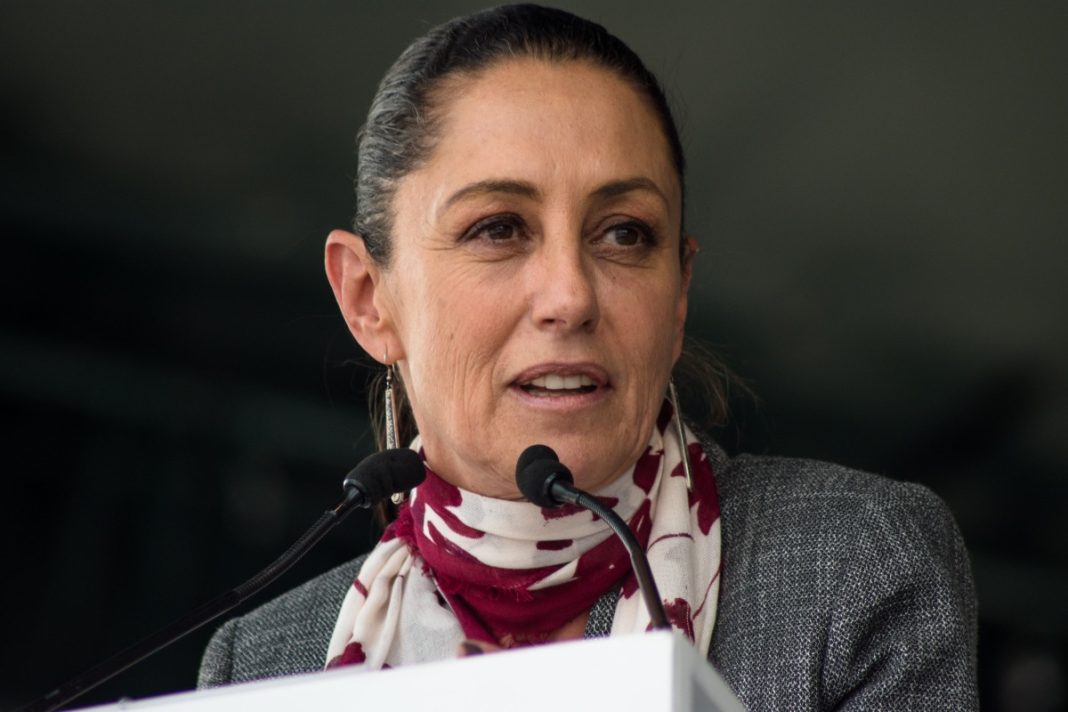MEXICO CITY, Mexico — On Tuesday, October 1, 2024, Claudia Sheinbaum made history as she was sworn in as Mexico’s first female president, marking a watershed moment in the country’s more than 200 years of modern political history.
The former mayor of Mexico City broke through the final barrier in Mexican politics and celebrated with raucous chants of “President!” inside and outside the congressional chamber.
Sheinbaum, who has long been a close ally of outgoing President Andrés Manuel López Obrador, began her inaugural speech by thanking her political mentor, calling him “the most important political leader and social warrior in Mexico’s modern history.”
López Obrador, who exits office with record-high popularity, leaves behind a political legacy that Sheinbaum vowed to uphold.
“It is time for women,” she declared to a standing ovation from lawmakers aligned with her governing party.
“Women have arrived to shape the destiny of our beautiful nation.”
Sheinbaum is no stranger to breaking barriers, having previously been the first woman to serve as mayor of Mexico City, a stepping stone that has now launched her to the presidency.
Drawing heavily on the successes of her predecessor, Sheinbaum highlighted the achievements of López Obrador’s administration, urging the public to reflect on the tangible improvements.
“How were 9.5 million Mexicans pulled from poverty?” she asked.
“How was unemployment reduced? Greater well-being created? The minimum wage repeatedly increased, but not inflation?”
She attributed these gains to what she called “Mexican humanism,” the guiding principle of López Obrador’s political project, which she has championed for two decades.
But while Sheinbaum painted a picture of economic success, critics are likely to dispute this optimistic portrayal.
Nevertheless, she laid out an ambitious agenda, pledging to transform the country’s health and education systems.
She promised to “consolidate the health service into the highest quality free public healthcare system” and to establish 300,000 additional places in higher education through new public high schools and universities.
“Health and education are rights of the Mexican people, not privileges nor merchandise,” she asserted.
However, significant challenges await Mexico’s new president. The country remains embroiled in a violent drug war, particularly in the states of Sinaloa and Chiapas, where cartel violence has surged.
The ongoing conflict, fueled by internal divisions within the Sinaloa Cartel, has led to deadly gun battles, especially in cities like Culiacán.
Critics argue that Sheinbaum’s experiences securing Mexico City cannot easily be replicated on a national scale, particularly if she continues López Obrador’s policy of avoiding direct confrontation with cartels.
Despite these challenges, Sheinbaum appears poised to navigate her own path while recognizing the influence of her mentor, whom she referred to as her “brother, friend, compañero.”
López Obrador has stated his intention to retire to his ranch in Chiapas, though some political analysts doubt that he will fully step away from the political arena.
Sheinbaum’s historic rise from student activist and climate scientist to president is a testament to her political acumen and determination.
“I’m a mother, grandmother, scientist, a woman of faith, and now, president!” she proclaimed in her closing remarks.
The pressure on Sheinbaum to succeed in her own right is immense, but her supporters, many of whom view her as a continuation of López Obrador’s legacy, are likely to offer her the time she needs to prove herself.
“I won’t let you down,” she assured the nation, promising to govern with “knowledge, strength, my past and my very life” to defend Mexico.
Her presidency ushers in a new era for Mexico, one that will be closely watched both at home and abroad as she tackles the dual challenges of fulfilling her campaign promises and addressing the ongoing security crisis.
As Mexico’s first female president, Sheinbaum has already made history. Now, she begins the difficult task of governing a deeply complex and divided nation.







